Table of contents
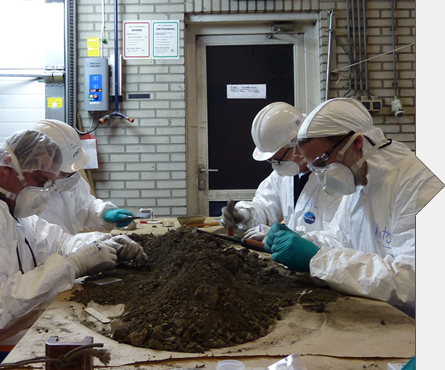
Forensic research into debris in Gilze-Rijen
Eleven containers completely packed with remnants of the crashed MH17. The forensic researchers search for the proverbial needle in
a haystack at the Gilze-Rijen airbase.
Within these containers there are many heavy aircraft components, sometimes weighing up
to 6000 kilos. Every piece passes through their hands at least five times in order to find that crucial piece of evidence.
Using crane trucks and forklifts, painstaking work is being done inside the military hangar.
READ MORE
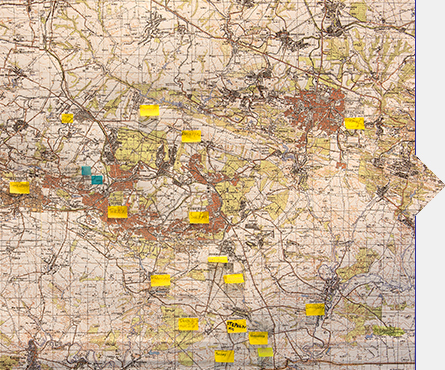
Field Office in Kiev
An incredible amount of research material, differing legal systems and initial unfamiliarity with each other. Despite this, both Australian and Dutch members working in the Field Office in Kiev have managed to build good relationships with each other and with the Ukraine to effectively conduct the investigation into the MH17 crash.
READ MORE
June 2016
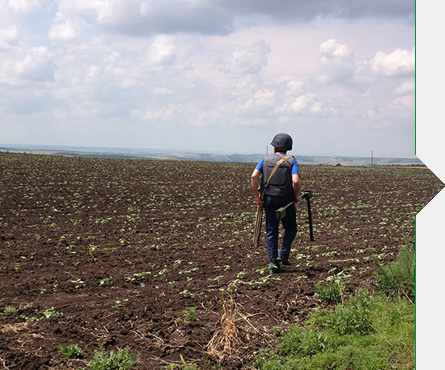
Collecting soil samples in disputed territory
How do you perform a criminal investigation within a disputed border region, where gun battles are taking place almost daily? Research leader Daan Noort of the Royal Netherlands Military Constabulary [Koninklijke Marechaussee] speaks about the mission to Eastern Ukraine where, amongst other things, soil samples were collected from the alleged launch sites. The mission finally succeeded in gaining access to the self-proclaimed People’s Republic Donetsk, but the Luhansk region remained closed.
READ MORE
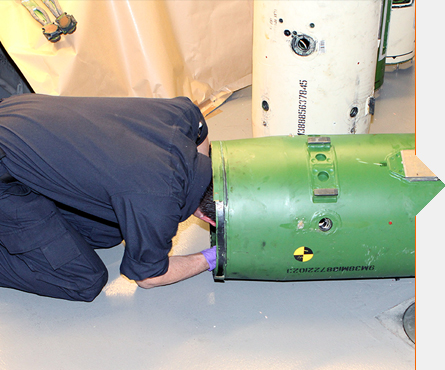
Investigation into the weapon system
Finding practical, accessible and especially reliable information about a missile system is a major effort. Moreover, one source is no source, so that means validate, validate and validate again! Investigators do everything in their power in order to find the necessary evidence.
READ MORE
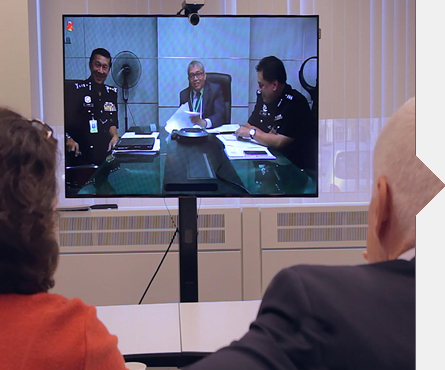
Five countries, one investigation
Five countries, the Netherlands, Australia, Belgium, Malaysia and Ukraine form the
Joint Investigation Team (JIT): that means differences in language, culture and legal systems. In the JIT the team solves practical problems about investigation requests and information exchange. Although many complex challenges remain.
READ MORE
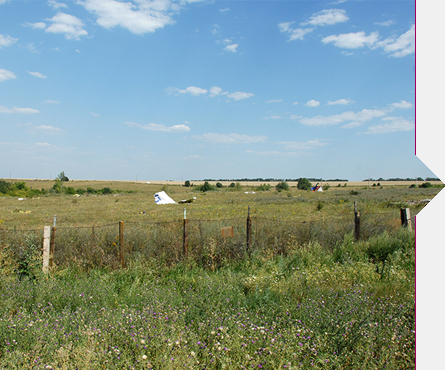
Requests for legal assistance to eighteen countries
Without the formal permission of another country, police officers are not allowed to speak to people in that country, let alone formally interrogate them. The same applies for all investigative activities. The powers of the Dutch police do not cross the border. In order to conduct an investigation abroad formal requests for legal assistance are required. The Netherlands has made many such requests for legal assistance to eighteen different countries.
READ MORE


